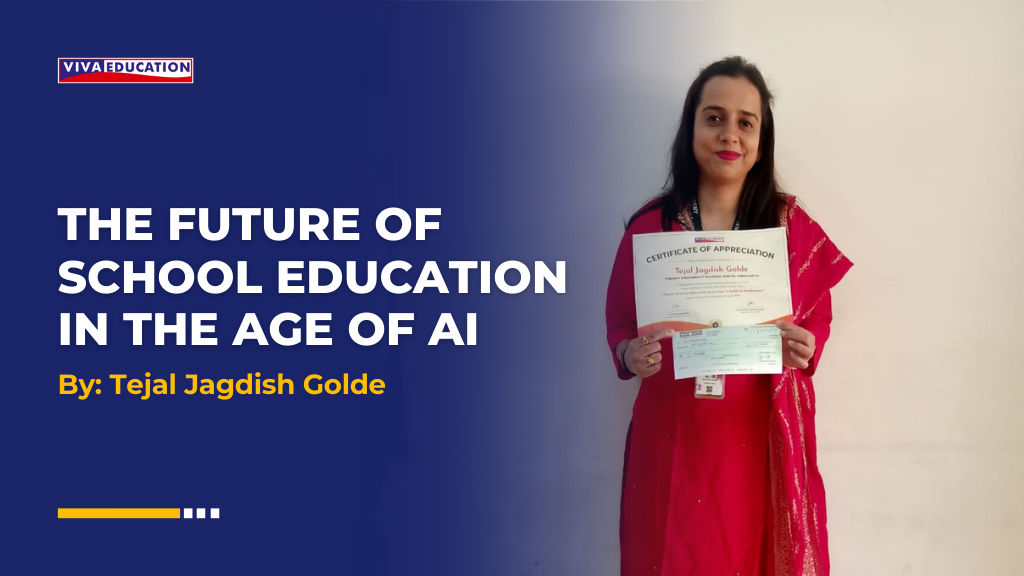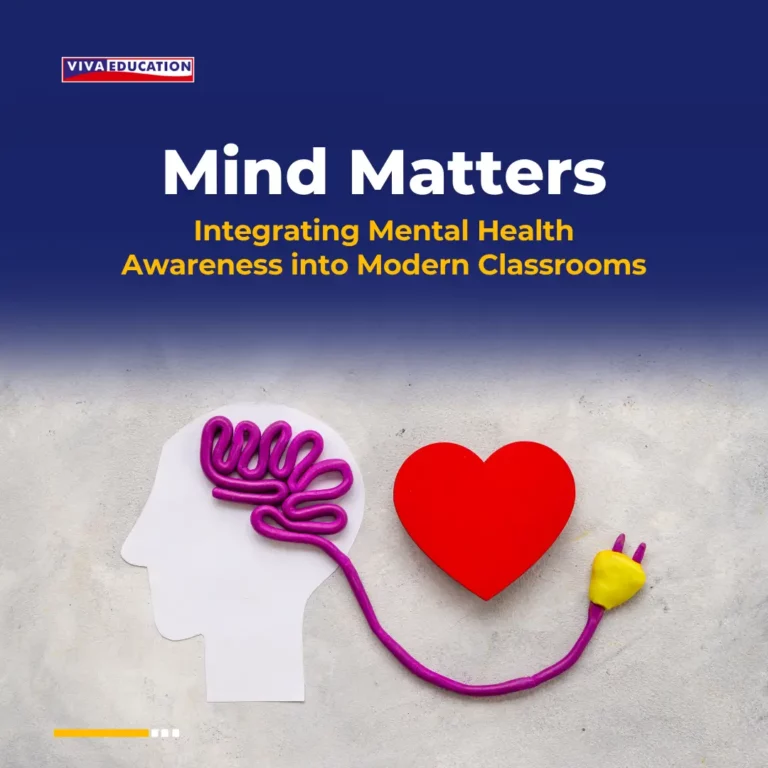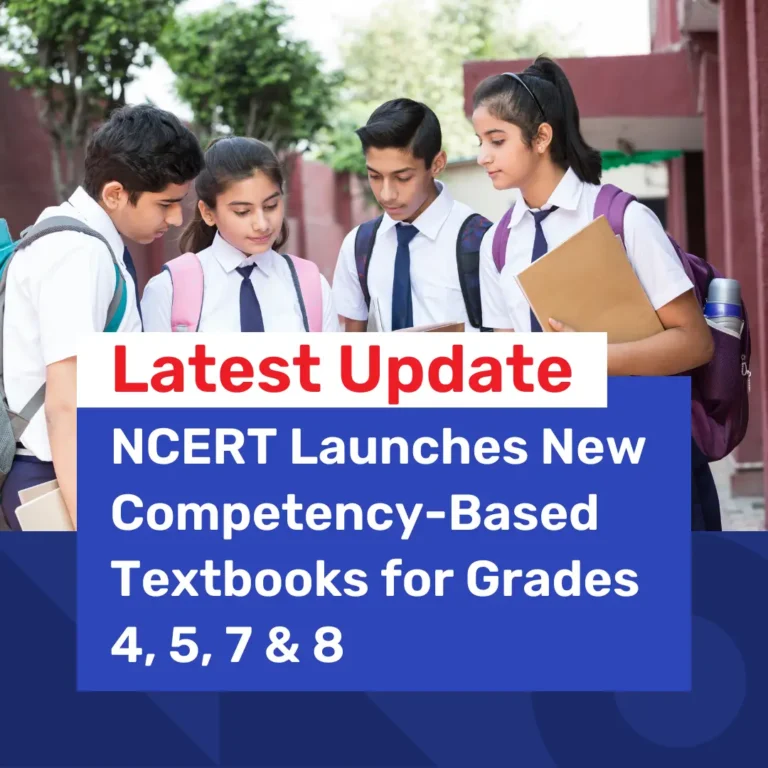Future of School Education in the Age of Artificial Intelligence (AI)
- Schools
- September 4, 2024
- Ms. Tejal Jagdish Golde

Child centered engagement is crucial and is known to pose advantages for effective learning, and AI has the potential to make learning more engaging than ever. AI can make learning delightful by incorporating gamification elements, interactive simulations, and virtual reality. This not only boosts interaction and engagement but also helps in long term retention of knowledge and understanding.
AI enables the creation of personalized teaching and learning paths that are for individual student needs, strengths and weaknesses .AI can also provide ongoing real time feedback on any student at any time. This allows students and teachers to monitor the progress and identify the areas which need improve and then can make the adjustments accordingly as per the needs of the child. Vast amounts of data can be created by AI to tailor the individual needs and preferences of students.
AI algorithms can analyse student data and adapt to the learning style of each child. To use AI widely there are some needs that need to be catered by public sector to access to the amounts of using AI among a general population-common man. Design and development of AI systems that are fair and unbiased means a lot in today’s education world because this is an era where technological advancements are reshaping today’s world in education. AI integration should only be there to enhance AI integrated educational opportunities worldwide.
AI has emerged as a transformative force and expanding access to education, particularly in developing countries where traditional structures maybe lacking .AI powered initiative have played a vital role in democratizing education by providing innovative solutions to bridge the gap between learners, teachers and educational resources.
The integration of artificial intelligent and education system holds is the promise of revolutionizing how knowledge is imparted, accessed and personalized on global scale. However, as AI permits education landscapes, it is crucial to examine its role in bridging the gap between education and digital world.
Moreover, AI driven tools facilitate a real- time assessment and feedback that enables educators to identify learning gaps in each student and promptly intervene them accordingly. Intelligent tutoring systems powered by AI simulate one-to-one interactions between students and tutors, offering immediate guidance and support as per their needs. Overcoming resource constraints for only facing traditional classroom settings.
Furthermore, AI enhances the accessibility of educational resources through language translation services making learning materials available in multiple languages that help the education driven student centered. This feature is invaluable in multicultural and multilingual societies where students don’t take education owing to specific language.
Beyond personalized learning AI powered educational platforms leverage data analytics to forecast future learning trends and new methodologies. By harnessing data analytics educational institution can identify areas for improvement and refine teaching methodology and enhance overall educational outcomes which indirectly benefit the student and the education system hand in hand.
There are so many advantages of AI in education system. Also, there are challenges and concerns that come along with AI. One prominent issue is digital divide and technology in education opportunities. There are concerns regarding data privacy and security. This arises as student data is collected at a wide range and it raises ethical questions regarding consent, data ownership, and the potential misuse of these sensitive data’s.
Next, there is a growing apprehension regarding the impact of AI in the role of educators. Teachers may get lazy and will not take any responsibility of any child. AI may be able to teach everything but AI will not be able to read a child mentally and thus some children might not get the required help on some particular time.
While AI can augment teaching practices and streamline administrative tasks, there are fears of NO JOB among the educators. The human touch in education characterized by empathy, creativity and critical thinking remains irreplaceable. Thus, it is essential to strike a balance between AI-driven education and preservation of human-centric pedagogical approaches.
Furthermore, the bias inherent in AI algorithms as mentioned above poses a significant challenge. Addressing to all these challenges is a very important point that needs to be taken into consideration.
It is important to provide training too for every individual. By offering targeted training programs and resources, AI enables candidates to enhance skills and advance their careers, improving their overall experience with the company. This commitment to continuous learning can also increase employee satisfaction and retention.
Leveraging AI for employee experience is a transformative approach that can foster a more productive and supportive work environment. From streamlined customer support to optimized talent management, AI opens up many avenues for organizations to use technology to boost employee satisfaction.
Thus, AI is a constellation of many different technologies which have advantages and disadvantages. This can be achieved by working together to enable machines to sense, comprehend, act and learn with human-like levels of intelligence.
This blog is the winning entry in our BLOG CONTEST for Educators on the topic: “The Future of School Education in the Age of Artificial Intelligence.
Submitted by: Ms. Tejal Jagdish Golde from Fravashi International Academy, Nashik
Please note: The views and ideas expressed in this blog are those of the author and do not necessarily reflect the views of our organization.



